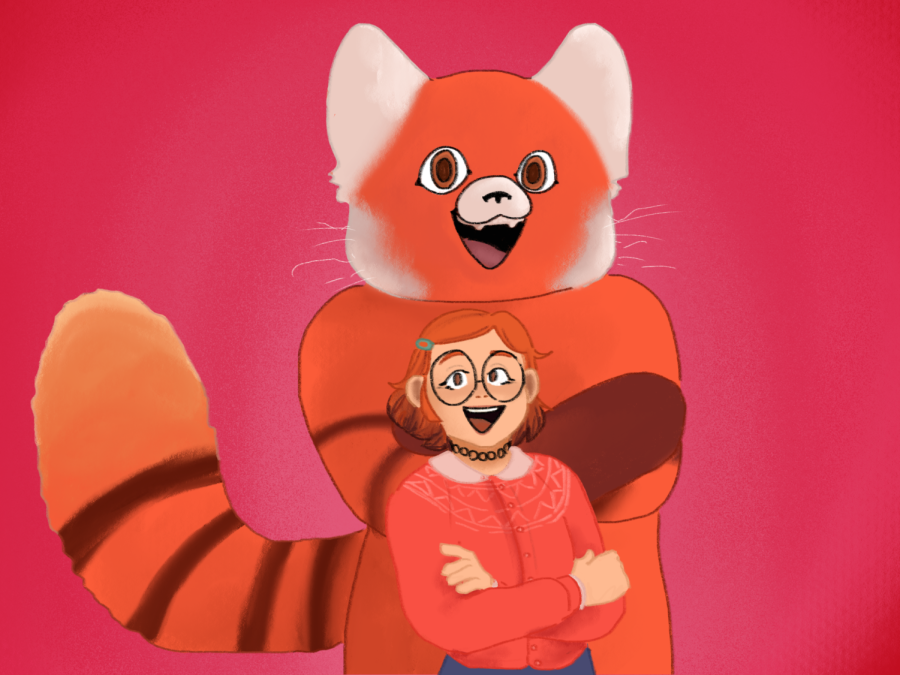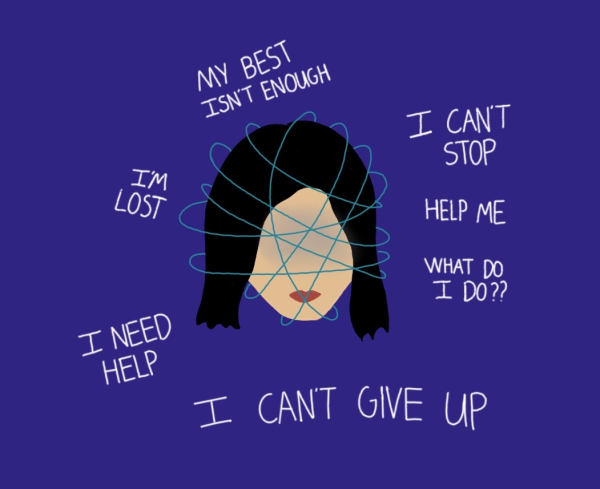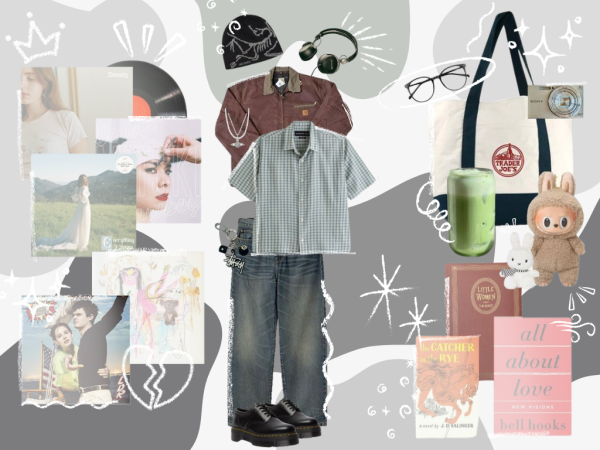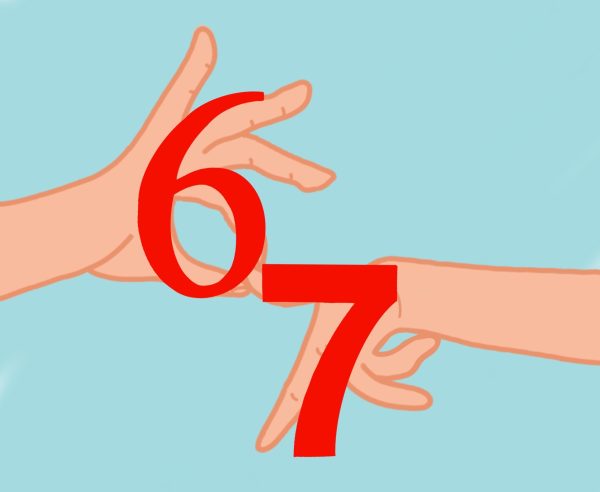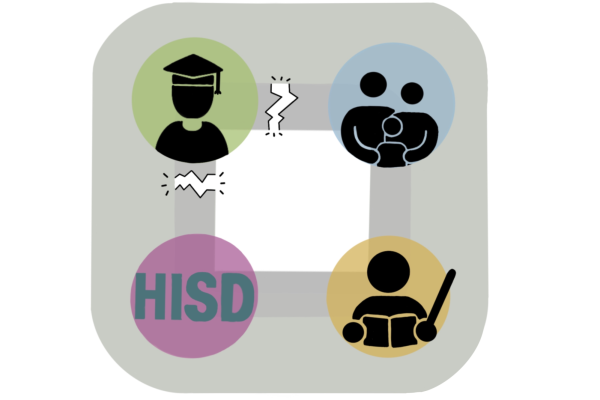‘Turning Red’ is turning heads: why parent pushback on Disney’s newest film is unnecessary
“Turning Red” explores classic coming-of-age-themes through the lens of a girl gaining magical powers.
Turning Red is Disney’s newest animated film, an early 2000s coming of age story that follows Canadian eighth grader Meilin Lee who discovers that she has inherited the power to turn into a giant red panda when she feels strong emotions. This trait is passed down by the women in her family and can only be cured by a ritual during a red moon.
Most good stories have both an internal conflict and external conflict. In this case, Mei’s external conflict is her struggle to control her panda form and later to earn enough money to go to the 4*Town boy band concert with her friends. Mei’s internal conflict is the struggle between honoring her mother and choosing her own path for herself.
I found both of these plot lines very entertaining and relatable, so I was disappointed to learn that, early after its release, the media was buzzing about “Turning Red” for a very different reason. Despite box office success and an 94% approval rating on Rotten Tomatoes, “Turning Red” has received social media backlash for its exploration of ‘mature themes’ like periods and romantic attraction.
In short: some parents believe that “Turning Red” is too mature for kids, and to an extent, I actually agree. If parents went into the theaters expecting a child-centered animal adventure story, I can see how they would be critical of some of the movie’s more mature themes.
But that’s not what “Turning Red” is about.
In reality, “Turning Red” is more geared towards pre-teens than kids, and is rated PG for that reason. Meilin is thirteen, and her story reflects the maturity, struggles and growing pains of a young teenager, not a child. “Turning Red” is about a girl who wants to be seen as an adult, but is still struggling to figure out what that means for her.
While I can understand parents of young kids being turned off by Meilin’s daydream fantasies about boys or her “inappropriate” party dance moves, there is one controversy in particular I do want to defend: “Turning Red”’s portrayal of menstruation.
When Mei transforms into a red panda for the first time, she doesn’t understand what’s happening to her. Due to a misunderstanding, Mei’s mother believes that Mei has started her period, and proceeds to give her advice and even pulls out boxes of pads.
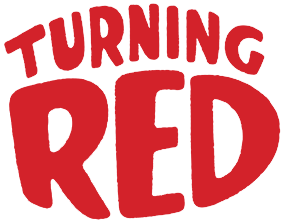
As a teen girl myself, I found this refreshing. I’d never seen this topic tackled in an animated film before so I thought that it was cool to see Disney portraying periods in a way that was not overly explicit, but still true to life. Mei’s mom’s awkwardness and Mei’s panic both felt very realistic.
I can respect parents wanting to wait until young children are older to broach the topic of puberty, but also want to stress the positive impact of having a scene like this present in a coming-of-age movie like this.
Most girls start their periods between 10 and 15. It can be an awkward, uncomfortable milestone for some, and actually showing scenes like this one could help normalize the experience. It might make pre-teen girls watching the movie feel less embarrassed or alone.
Of course, parents have a right to decide what content to expose their kids to. If a parent is totally opposed to the idea of having to explain periods to their kids, then they are well-within their right to avoid the movie altogether. Or they can always give the same non-answer parents have been giving to hidden dirty jokes for decades, “I’ll tell you when you’re older.”
“Turning Red” is funny, nostalgic, and touching. The nods to early 2000s trends like Tamagotchi toys and boy bands made the story fun for me as an older teenager. The panda antics are perfect for younger kids, and the main theme: about growing up and becoming your own person, are relatable to everyone who is experiencing that life stage, or already has.
Your donation will support the student journalists of Bellaire High School. Your contribution will allow us to purchase equipment and cover our annual website hosting costs.


